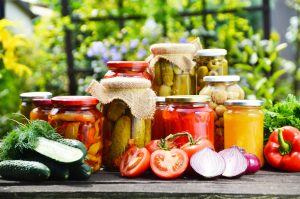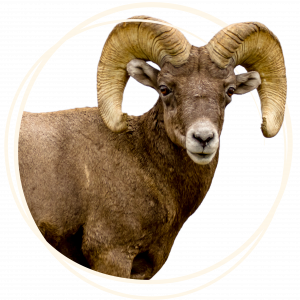Botulism
Botulism is caused by bacteria that make a toxin*, which attacks the body. It is a rare illness that can be found in the natural environment but there are a couple different ways a human can become sick.
Overview
How can I get sick?
- Foodborne Botulism
- The most common foods that can have botulism are those that are canned, preserved* or fermented*. However, eating improperly smoked or undercooked* fish that has the bacteria can also cause humans to get botulism.
- Infant Botulism
- This type of botulism happens in babies who are under 6 months old because they haven’t grown the natural defenses in their stomach to fight off the growth of bacteria. If a baby eats the botulism spores the toxin can enter their stomach and make them sick. Eating honey is a way babies can get infant botulism.
Symptoms in humans:
Symptoms usually begin 12 to 36 hours after exposure.
- Feeling very tired
- Weakness
- Vertigo (dizziness)
- Can’t see well
- Dry mouth
- Hard to swallow or speak
- Throwing up
- Diarrhea (runny poop)
- Not being able to poop
- Stomach swelling
Botulism can move to the arms and neck causing weakness and later can affect the lungs and lower body muscles.
What can I do to stay healthy?
- Make sure to follow safe home canning practices and instructions recommended by USDA.

- It is hard to prevent infant botulism because it is rare, and the bacteria can be found in dirt or dust. However, honey can contain bacteria associated with botulism to make sure to not feed honey to infants under the age of 1.
*Definitions:
- Fermented: When sugars are broken down through a chemical process such as when creating wine, beer, bread or yogurt.
- Preserved: To treat food so it can be kept for a longer period of time and won’t go bad.
- Toxin: A substance produced by plants and animals that is bad for you.
- Undercooked: Cooking food less than the recommended time or temperature.
Species Affected

Learn About Other Diseases
Click below to learn more about the many different diseases that can spread between animals and humans.
Diseases